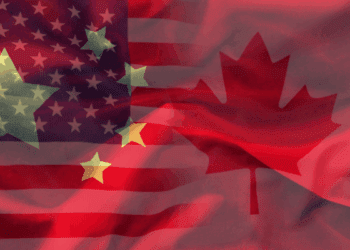For a “stealth” aircraft the F-35 Joint Strike Fighter seems to be drawing a lot of flak before it even gets to the runway. A great outcry followed last week’s announcement by Defence Minister Peter Mackay that Canada will be purchasing 65 of the next generation fighter planes. Since I was working at National Defence at a time when Canada was involved in the Joint Strike Fighter (JSF) development program and Lockheed Martin was chosen as the contractor in 2001 I can say with some confidence that most of the criticism is off target.
In the first place, Mr. Mackay’s announcement last Friday was not some bolt from out of the blue. The government signalled this intention some time ago and last Friday was just the latest step in a process that actually began in 1997 under a government of a different political stripe. Canadian governments have put up some hundreds of millions of dollars, since 1997, in order to belong to the “club” that developed the F-35 stealth fighter, led by the US and including Italy, the United Kingdom, Norway, Denmark, Australia, the Netherlands, and Turkey.
This announcement should have been no big surprise and no cause for alarm. Substantial taxpayer dollars have been invested in the program. Canadian firms have been involved in the project and seen over $300 million in contracts since 2002 and, of course, there are always important considerations of “interoperability” with respect to NORAD in this type of purchase. Simply stated, we share protection of North American air space with our American allies and it is best that our equipment be the same, particularly in this age of digital command and control.
“Interoperability” is not some mysterious fantasy word. It means precisely what it seems to mean: The military equipment of our two Forces should be able to work together seamlessly. In the 21st century it is the “systems” in the planes rather than the physical hardware that must be truly interoperable. Navigation and weapons systems should let fighter jets from both countries cooperate tactically anywhere along our North American perimeter. It is just common sense. Including from a maintenance perspective.
Our Navy is certainly highly interoperable and is recognized by the Americans as being so. And it has been most beneficial in deployments to the Middle East, as well as in at search-and-rescue work close to our North American shores.
The shock and surprise over the recent announcement is difficult to comprehend. The path towards a purchase of F-35s has been clear for many years. And our southern neighbours will expect Canada to pull its weight as part of the post-911 defence of the North American continent. You can bet they intend to be vigilant, as our seat in NORAD lets us be. And if we don’t update our military equipment precisely the way this F-35 purchase does, you can bet the Americans will be watching over us. Our sovereignty is best served by being part of the effort not merely subject to it.
In spite of all this, a debate has erupted over the announcement. Military purchases will always be subject to intense scrutiny because of the massive dollar figures involved, and so they should be. But this decision is being criticized on two particular grounds. First, the “sole source” nature of the contract and whether there is better value to be had for the largest defence purchase in our history. Second, whether this particular capability is even needed by the Canadian Forces. And it is fair to say the government did not do a particularly good job of explaining either point even though its decision was sound on both.
Is it really a sole-source contract when the government and Canadian industry have been involved since the start of the JSF project? Hardly. The Government should have explained it that way from the outset. Additionally, when it comes to large purchases of military equipment that must be interoperable with the armed forces of a much larger ally there are not always choices available; there is only one F-35 and the Americans are buying it and so should we. That too should have been explained.
Whether or not we need jet fighters is another question that has popped up in recent days. It is a strangely abstract question to raise suddenly in public after thirteen years of involvement in the JSF program. Given our enormous land mass and shared custody of the North American continent, and even the occasional need to mount overseas missions with air support, it is not obvious why critics believe we should be using a European alternative.
In short, it makes perfect sense to utilise technology from our closest ally, technology Canadian firms help create. And when decisions like this have been made after many years of planning, in a process that was well known, involving governments from different parties, they should come as no surprise.
I know. I was there.




